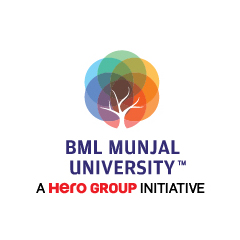Mental health most impacted during Covid-19 say students: BML Munjal University survey
The first of its kind survey with college students examines sentiment of their year amid Covid-19 and outlook for 2021
Key findings-
46 percent of young adults in the college say that mental health has been the most impacted amid Covid-19
Stress, anxiety and loneliness have been the most challenging to cope with along with the uncertainty of post college careers
37 percent say that they have missed their friends the most
The pandemic has come with tough learnings; 37 percent say that they realise the importance of cultivating good mental and physical health and 28 percent state the importance of friends and family
There’s light at the end of the tunnel and India’s young adults are hopeful of normalcy returning with the vaccination drive
The future of education is hybrid, say 45 percent of students
OTT content wins hands down as the most consumed for leisure
India, February 26, 2021: As the country continues to battle the coronavirus, young adults in college say that their mental well-being has been most impacted by the pandemic’s social consequences. But the silver lining is visible to most and the outlook is one of hope for this year, state the results of a first of its kind survey by BML Munjal University (BMU), a Hero Group initiative, with college students that examines the ‘sentiment’ of their year amid Covid-19 and outlook for 2021.
One out of every two 49 percent students say that stress, anxiety and loneliness have been the most challenging to cope with during Covid-19 that has impacted their mental health. Approx. 26 percent cite not being able to keep up academically to be most challenging. About 15 percent say that not having a dedicated place for studying at home was a challenge and a meagre 10.47 percent cite poor Internet connectivity to be a pressing concern.
Stress is exaggerated by their concerns of post college careers. 55 percent of college students are concerned, of which 38 percent say they are very concerned about their future because of the uncertainty of the situation. In this scenario, their expectations from their college are to offer functional courses that would be more relevant in the new normal. 51 percent of students cite this as an expectation while 32 percent of students expect their college to facilitate industry placements.
Social isolation has been difficult to deal with and a majority of students, 37 percent say that they have missed their friends acutely, followed by the buzz of social events (25 percent) and hands on training on campus.
There’s hope at the end of the tunnel and the sentiment is buoyant among students for the new normal. About 78 percent of students surveyed are feeling hopeful about the future than they did when the pandemic began. Of these nearly 40 percent say that with the vaccination drive underway, they are hopeful that normal life will resume soon.
India’s young adults display positive energy and resilience to respond fast and surprisingly well to unprecedented challenges. Students have taken away important learnings from this black swan event. 37 percent of young adults say they realise the importance of mental and physical health, 28 percent the importance of family and friends and nurturing relationships and 12 percent say that it has reminded and restored their confidence in the resilience of the human spirit. ‘When the going gets tough, the tough get going’, is a lasting lesson that will remain with young adults.
With a lot of free time on their hands, young adults kept themselves entertained on OTT platforms. 33.4 percent of the students turned to watching content on OTT platforms such as Netflix, Amazon Prime, Hot Star, followed by playing video games (13.2 percent) and cultivating new hobbies (12.5 percent) within the confines of their premises.
While students have missed their college campuses and are eager to return, 1 out of every 2 students say that the future of learning will be hybrid.
“BML Munjal University is at the forefront of transforming the education space across the various disciplines it offers by having a close ear to the ground of the industry. Our curriculum is designed and delivered keeping in mind these transitional requirements and our emphasis on hands-on practical training to students ensures that our students are ready for the changing world. This black swan event has upended the daily lives of students with the emergency closures of campuses across the country and the shift to online instruction. We are keenly aware that the current situation is stressful but it has been our endeavour to support our students during this time. We are constantly innovating to design a future roadmap to guide students on the next course of action. I am confident that the findings from the survey will interest both industry and students alike”, said Prof. (Dr.) Manoj K Arora, Vice-Chancellor, BML Munjal University.
Survey methodology
BMU undertook this survey in the January – February 2021 time frame with 600+ students across high school (10 percent), under – graduates (66 percent) and PG courses (15 percent). Under 10% were those who had passed out of college. Of these, 72 percent respondents were male and 28 percent were female.

